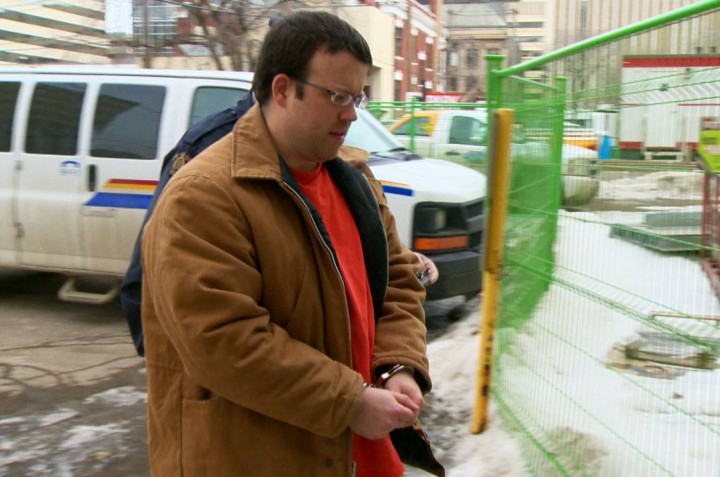SASKATOON – Douglas Hales will not get a new trial. On Monday, a panel of three judges at the Saskatchewan Court of Appeal denied Hales’ appeal which means his second-degree murder conviction for killing Daleen Bosse will stand.

Some reassuring news for the family of Bosse, less than a year after Hales was found guilty both of murdering the 25-year-old mother in 2004 and offering an indignity to human remains after burning her body.

“I’m thankful for the outcome and that justice has been served and our family doesn’t have to go through this again,” said Pauline Muskego, Bosse’s mother, outside the Saskatchewan Court of Appeal.
READ MORE: Camera in Saskatchewan courtroom is encouraging according to lawyer
Last December, Hales was sentenced sentenced to life in prison with no chance of parole for 15 years.
In 2008, Hales was charged with Bosse’s murder after she vanished without a trace four years prior. Bosse’s family told the media on Monday that they can breathe a little easier, more than a decade after her death.
“I was kinda worried because sometimes the justice system can turn on you.”
Targeted by RCMP undercover officers in a so-called “Mr. Big” sting after Bosse’s death, Hales eventually led the officers to her remains in a wooded area outside of Saskatoon.
On Monday, court found the evidence too “overwhelming” against Hales after he also confessed to killing Bosse to the undercover agents posing as criminals to gain his trust.
Techniques that came under fire last summer when the Supreme Court of Canada ruled stings of this nature could lead to unreliable confessions.
“The trial judge in this case was satisfied that the statement was reliable, its reliability outweighed it’s prejudice effect and that was an appropriate finding based on the evidence,” said Dean Sinclair, Crown prosecutor.
“The “Mr. Big” investigative technique is something that the police have used to solve many murders in Canada,” he said.
“There is not a question in my mind that in many of those cases the murders would not have been solved but for the use of that investigative technique.”
From the outset, Douglas Hales was a suspect in Bosse’s death but there wasn’t enough evidence to charge him before the Mr. Big sting.
“When he was arrested for the offence and interviewed by the Saskatoon city police and he was told that ‘these people you talking were actually undercover officers’ he gave a voluntary confession to the Saskatoon city police so that certainly made the case against him overwhelming,” said Sinclair.
“It was of great assistance in bringing closure to the victim, the victim’s family and the community as a whole.”
Bringing cameras into court
As part of a pilot project, a camera was allowed inside the courtroom to capture the proceedings. A first in the province’s history with one camera rolling from the courtroom and sharing the footage with the remaining media.
Some of the conditions by the court included the camera personnel being in place 10 minutes prior to proceedings getting underway and it was to be operated in a way that didn’t distract anyone, panel and legal counsel included.
In addition, the footage for broadcast wasn’t live since publication bans as part of the case still needed to be upheld.




Comments